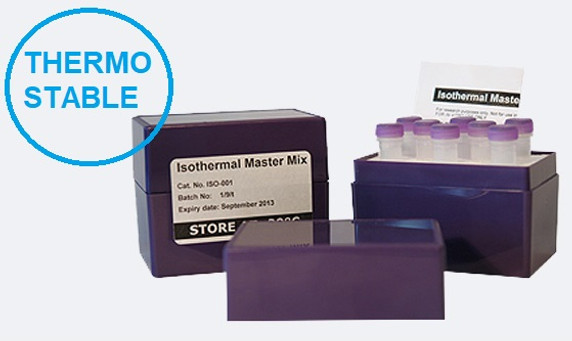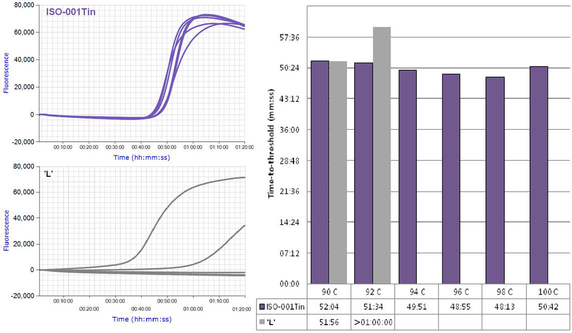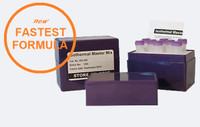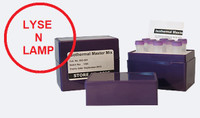
OptiGene
Thermostable Isothermal Master Mix (Dried - 300 rxns)
Product Code:
OPG-ISO-DR001Tin
Log in for pricing
OptiGene’s novel isothermal mastermix for amplification reactions that require an initial heat-denaturing step.
- Suitable for HD-LAMP (Heat-denaturing LAMP).
- Contains the patented highly thermostable Tin(exo-) LF DNA Polymerase.
- Extreme thermostability and strong strand-displacement activity enable applications unachievable in a single, closed-tube reaction using alternative isothermal enzymes.
- Bulk economy packs avaliable (1500+ reactions)! E-mail customerservice@geneworks.com.au for quotation.
Key features:
- Extreme thermostability* ( < 98ºC )
- Strand displacement activity
- 65ºC temperature optimum
- 5’-3’ exonuclease minus
- 3’-5’ exonuclease minus
*no loss of activity is observed in a LAMP reaction following 5 minutes @ 95ºC step.
Advantages of HD-LAMP:
- Template denaturation step at 95ºC prior to amplification has been shown to increase target sensitivity1
- Increased primer specificity – reduces false-priming that may occur at lower temperatures.
- Simple template extraction (cell-lysis).
- Sample heat-lysis, amplification and detection in a single tube.
OptiGene’s novel isothermal mastermix for amplification reactions that require an initial heat-denaturing step.
- Suitable for HD-LAMP (Heat-denaturing LAMP).
- Contains the patented highly thermostable Tin(exo-) LF DNA Polymerase.
- Extreme thermostability and strong strand-displacement activity enable applications unachievable in a single, closed-tube reaction using alternative isothermal enzymes.
- Bulk economy packs avaliable (1500+ reactions)! E-mail customerservice@geneworks.com.au for quotation.
Key features:
- Extreme thermostability* ( < 98ºC )
- Strand displacement activity
- 65ºC temperature optimum
- 5’-3’ exonuclease minus
- 3’-5’ exonuclease minus
*no loss of activity is observed in a LAMP reaction following 5 minutes @ 95ºC step.
Advantages of HD-LAMP:
- Template denaturation step at 95ºC prior to amplification has been shown to increase target sensitivity1
- Increased primer specificity – reduces false-priming that may occur at lower temperatures.
- Simple template extraction (cell-lysis).
- Sample heat-lysis, amplification and detection in a single tube.









